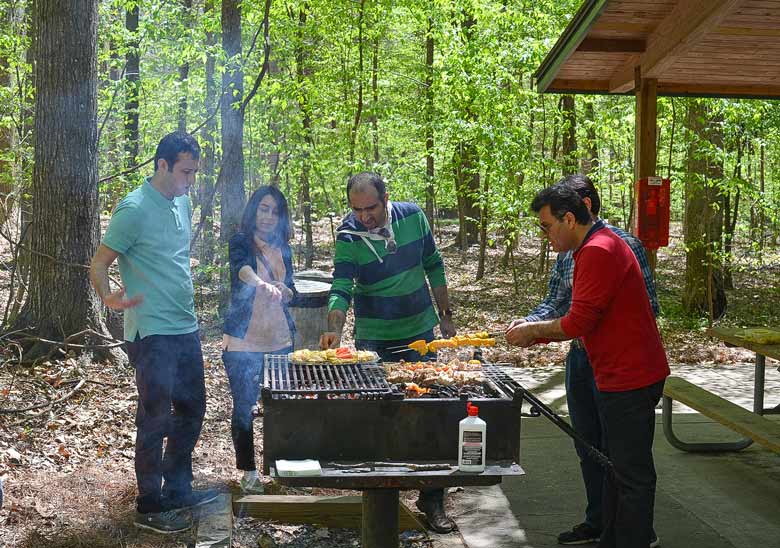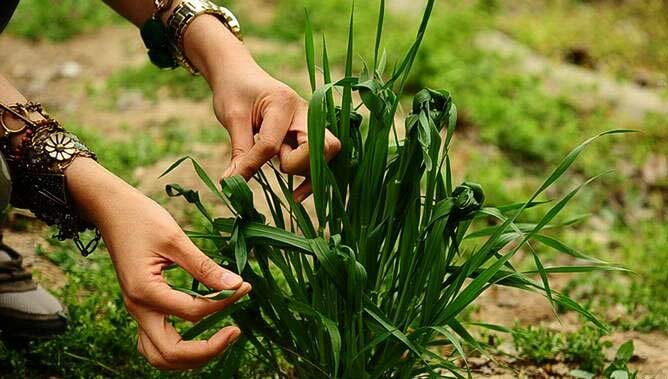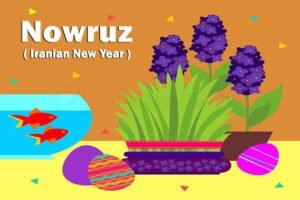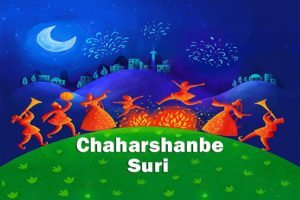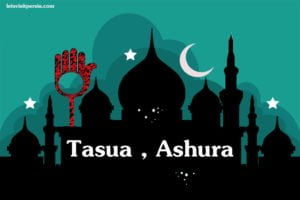
Sizdah Bedar
Sizdah Bedar “ thirteen outdoors ”, also known as Nature’s day, is the 13th day and considered as the final day of the Persian New Year that marks the end of Nowruz festivals. It is on or close to April Fool’s Day.
The tradition of leaving the house early in the morning on this day is widespread throughout Iran. Even rainy weather won’t stop people from re-joining with nature.
It’s a day that people celebrate it by spending all day picnicking outdoors with their families and friends along with different kinds of foods and fruits and comfort stuff such as blankets and pillows, all activities and games are packed too.
Music is played and this time is spent and filled with joy and laughter in the fresh spring air.
Ash Doogh, Ash Reshteh, and Kahoo Sekanjabin are traditionally served for this special day.
Ash Doogh is a soup made with yogurt or Doogh (a Persian fizzy drink that is made with yogurt, water, and mint) and different kinds of herbs.
Ash Reshteh is a thick vegetable noodle soup, Kahoo is lettuce, and Sekanjabin is a drink made of honey and vinegar and it’s a perfect crisp for hot weather.
Sizdah Bedar Roots
Sizdah Bedar celebration has deep roots in the Zoroastrian belief. Laughter and joy symbolize getting rid of bad thoughts.
According to Zoroastrianism, bad thoughts and sadness are the gift of Ahriman (the devil) and his offspring and the joyful festivals will cleanse all bad thoughts. The celebrations defeat the enemies and bring back the peace.
Another notable tradition of Sizdah Bedar is knotting the Sabzeh (wheatgrass).
Unmarried girls and boys tie a knot with grass and make a wish to find a partner in the coming year.
Other wishes can be put into the wheatgrass as well. Wishes like health and happiness for the incoming year.
There’s a famous song that unmarried girls sing in this day while knotting the wheatgrass which means: In next year, you’ll find me in my husband’s house with a baby in my arms.
At the end of the day, people throw their wheatgrass away in nature (a stream, a river or anywhere where water flows) as a symbolic act and to get rid of the bad luck and general misfortunes associated with the number 13.
SHORTCUTS
Tripadvisor: Letsvisitpersia
WhatsApp :+989333020393
Telegram: Letsvisitpersia
